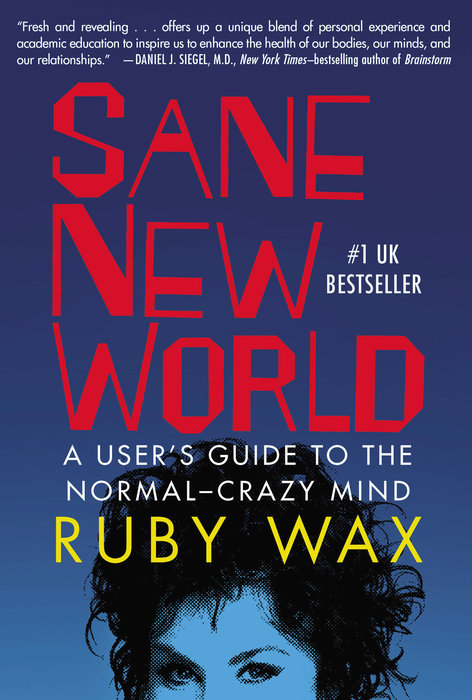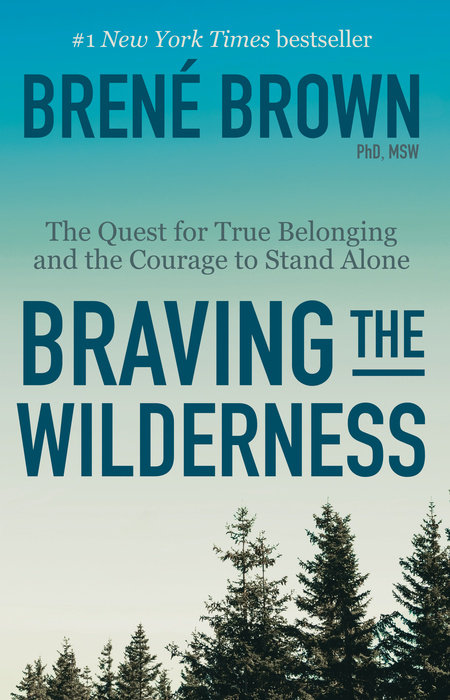We’ve all felt lonely from time to time. But sometimes, things can get out of hand. Psychologist Guy Winch lays out some straightforward tips to deal with the pain of deep loneliness.
YOU MIGHT ALSO LIKE
CLEAR ALL
BY TOPIC
BY TEACHER
BY TYPE
FILTER

TOPIC
- Anxiety (34)
- Depression (29)
- Honoring Emotion (26)
- Self-Care (20)
- Neuroscience (19)
- Stress Management (19)
- Habit Formation (13)
- Parenting (13)
- Athlete Well-Being (12)
- BIPOC Well-Being (12)
- Emotional Intelligence (EQ) (12)
- Relationship Challenges (12)
- Resilience (12)
- Stress (12)
- Brain Health (11)
- Self-Esteem (11)
- Trauma Healing (11)
- Well-Being (11)
- Anger (10)
- Black Well-Being (10)
- Communication Skills (10)
- Fear (10)
- Belonging (9)
- Child’s Emotional Growth (9)
- Positive Thinking (9)
- PTSD (9)
- Self-Discovery (9)
- Self-Healing (9)
- Cancer (8)
- Inner Peace (8)
- Mental Health Challenges (8)
- Mind-Body Connection (8)
- Mindfulness (8)
- Mindfulness Practices (8)
- Motherhood (8)
- Physical Health (8)
- Self-Reflection Practices (8)
- Shame (8)
- Suicide (8)
- Addiction (7)
- Children’s Well-Being (7)
- Courage (7)
- Criticism and Rejection (7)
- Goal Setting (7)
- Life Challenges (7)
- Negative Self-Talk (7)
- Search for Purpose (7)
- Self-Compassion (7)
- Self-Limiting Beliefs (7)
- Vulnerability (7)
- Activism/Service (6)
- Authenticity (6)
- Chronic Anxiety (6)
- Entrepreneurship (6)
- Fellowship and Community (6)
- Finding Meaning (6)
- Grief (6)
- Motivation (6)
- Self-Worth (6)
- Setting Limits and Boundaries (6)
- ADD/ADHD (5)
- Anger Management (5)
- Awareness (5)
- Compassion (5)
- Confidence (5)
- Connection (5)
- Empowerment (5)
- Friendship (5)
- Habits of Mind (5)
- Happiness (5)
- Meditation (5)
- Neuroplasticity (5)
- Peak Performance (5)
- Psychology (5)
- Trauma (5)
- Women’s Well-Being (5)
- Addiction Recovery (4)
- Asking for Help (4)
- Community Healing (4)
- Connection with Nature (4)
- Divorce and Breakup (4)
- Eating Disorders (4)
- Imagination and Creativity (4)
- Kindness (4)
- Memoir (4)
- Neurodiversity (4)
- Performance Anxiety (4)
- Positive Self-Talk (4)
- Presence (4)
- Self-Acceptance (4)
- Self-Mastery (4)
- Self-Realization (4)
- Speaking Your Truth (4)
- Spiritual Life (4)
- Suffering (4)
- Veteran Well-Being (4)
- Acceptance (3)
- Adaptability (3)
- Alcohol Addiction (3)
- Breathwork (3)
- Child’s ADD/ADHD (3)
- Chronic Pain (3)
- Clinical Depression (3)
- Cognitive Behavioral Therapy (3)
- Curiosity (3)
- Disconnection (3)
- Dysfunctional Childhood (3)
- Endurance (3)
- Failure (3)
- Gratitude (3)
- Guilt (3)
- Identity (3)
- Journaling (3)
- Joy (3)
- Marriage (3)
- Military to Civilian Re-entry (3)
- Neuropsychology (3)
- Racial Healing (3)
- Romantic Relationships (3)
- Self-Development (3)
- Self-Pressure (3)
- Social Anxiety (3)
- Attachment Theory (2)
- Autoimmune Disease (2)
- Biofeedback (2)
- Body Image (2)
- Body Positivity (2)
- Buddhism (2)
- Burnout (2)
- Child’s Anxiety (2)
- Child’s Trauma (2)
- Decision Making (2)
- Diet and Nutrition (2)
- Doubt (2)
- Exercise (2)
- Family Dynamics (2)
- Focus (2)
- Forest Bathing (2)
- Forgiveness (2)
- Global Challenges (2)
- Healthy Eating (2)
- Holism (2)
- Human Potential (2)
- Hypnosis (2)
- Inner Strengths (2)
- Integrative Medicine (2)
- Intergenerational Trauma (2)
- LGBTQIA Well-Being (2)
- Masculine/Feminine Dynamics (2)
- Mindfulness Meditation (2)
- OCD (2)
- Offering Support to Others (2)
- Optimism (2)
- Othering (2)
- Panic Attacks (2)
- Race and Gender (2)
- Racial Identity (2)
- Rest (2)
- Self-Actualization (2)
- Self-Love (2)
- Shadow (2)
- Situational Depression (2)
- Social Responsibility (2)
- Spiritual Growth (2)
- Toxic Relationships (2)
- Transformation (2)
- Trust (2)
- Values (2)
- Visualization (2)
- Yoga (2)
- Young Adult Well-Being (2)
- AAPI Well-Being (1)
- Abandonment (1)
- Academic Struggles (1)
- Accepting Love (1)
- Acupressure (1)
- Affirmations (1)
- Aging (1)
- Art Therapy (1)
- Autism (1)
- Building Culture (1)
- Cannabis/CBD (1)
- Child’s Autism (1)
- Child’s Challenging Behavior (1)
- Chronic Health Conditions (1)
- Codependency (1)
- Collective Trauma (1)
- Creative Well-Being (1)
- Cross-Cultural Dynamics (1)
- Dark Night of the Soul (1)
- Death or Loss of a Loved One (1)
- Despair (1)
- Dharma (1)
- Digital Life (1)
- Domestic Abuse (1)
- Empathy (1)
- Energy Healing (1)
- Environmental Justice (1)
- Facing Own Death (1)
- Faith (1)
- Fatherhood (1)
- Female Empowerment (1)
- Female Friendship (1)
- Generosity (1)
- Genetics (1)
- Goddess (1)
- Growth Mindset (1)
- Guided Meditation (1)
- Healing Approaches (1)
- Heartmath (1)
- Higher Calling (1)
- Highly Sensitive People (1)
- Hope (1)
- Inner Child (1)
- Intention (1)
- Intimacy (1)
- Jealousy/Envy (1)
- Latinx Well-Being (1)
- Leadership (1)
- Letting Go (1)
- LGBTQIA Children (1)
- Living as an Empath (1)
- Longevity (1)
- Loss of Partner/Spouse (1)
- Love (1)
- Massage (1)
- Memory (1)
- Mentoring (1)
- Narcissism (1)
- Nutritional Medicine (1)
- Performance Pressure (1)
- Personality Disorders (1)
- Positive Psychology (1)
- Post-Traumatic Growth (1)
- Prayer (1)
- Pregnancy and Childbirth (1)
- Psychoanalysis (1)
- Racism (1)
- Regret (1)
- Self-Expression (1)
- Self-Reliance (1)
- Sex (1)
- Sexuality (1)
- Sleep (1)
- Social Justice (1)
- Social Media Addiction (1)
- Social Psychology (1)
- Somatic Practices (1)
- Spiritual Crisis (1)
- Spiritual Practices (1)
- Spirituality and Health (1)
- Storytelling (1)
- Tibetan Buddhism (1)
- Vitamin Supplementation (1)
- Willpower (1)
- Work-Life Balance (1)
- Youth Activism (1)
FILTER

TEACHER
- Daniel Amen (2)
- Daniel J. Siegel (2)
- John Sarno (2)
- Karla McLaren (2)
- Rick Hanson (2)
- Russell Brand (2)
- Terri Cole (2)
- Alain de Botton (1)
- Amishi Jha (1)
- Andrew Weil (1)
- Andy Puddicombe (1)
- Bessel van der Kolk (1)
- Biet Simkin (1)
- Blaise Aguirre (1)
- Brené Brown (1)
- C. S. Lewis (1)
- Chip Conley (1)
- Chögyam Trungpa (1)
- Connie Zweig (1)
- Daniel Goleman (1)
- Dilip Jeste (1)
- Dorothy Day (1)
- Eckhart Tolle (1)
- Elaine Aron (1)
- Gary Zukav (1)
- Gordon Neufeld (1)
- Harriet Lerner (1)
- Hyla Cass (1)
- Iskra Lawrence (1)
- James Doty (1)
- Jan Willis (1)
- Jana Long (1)
- Jay Shetty (1)
- Jeff Foster (1)
- John Bradshaw (1)
- Kim Eng (1)
- Kristin Neff (1)
- Leah Guy (1)
- Lindo Bacon (1)
- Lise Van Susteren (1)
- Lissa Rankin (1)
- Lodro Rinzler (1)
- Lori Gottlieb (1)
- Mihály Csíkszentmihályi (1)
- Neil Pasricha (1)
- Nicole LePera (1)
- Noah Elkrief (1)
- Paramahansa Yogananda (1)
- Pema Chödrön (1)
- Poppy Jamie (1)
- Rainer Maria Rilke (1)
- Ralph De La Rosa (1)
- Ruby Wax (1)
- Sadhguru (1)
- Sarah Blondin (1)
- Stephanie Y. Evans (1)
- The Dalai Lama (1)
- Thich Nhat Hanh (1)
- Thubten Chodron (1)
- Tony Gaskins Jr. (1)
- William Bloom (1)
- Yael Shy (1)
- Zalman Schachter-Shalomi (1)










